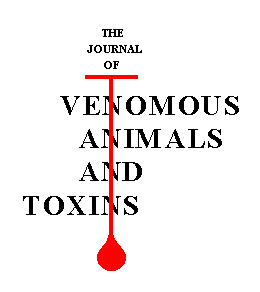THESIS: E. C. A. Silva submitted this dissertation for the degree of Master in Sciences publicly examined at the Institute of Biosciences of Rio Claro - UNESP, São Paulo State University, Brazil, in 1994.
Advisor: Professor José Chaud-Netto
ABSTRACT. The effect and relative importance of factors which would affect queen production and natural mating were studied to determine the best conditions to rear Africanized honeybee queens (Apis mellifera) in tropical climate of altitude. The experiments were carried out in Pindamonhangaba, at latitude 22º 57' south, 550m above sea level, in the State of São Paulo. Sixteen groups of 36 honeybee queens were used as follows: 252 were reared and introduced in nectar flow periods and the remaining 324 ones in food scarcity periods. Each experimental group comprised 12 queens, aged between 1-2, 3-4 and 5-6 days which were released for nuptial flight. The following variables were studied: queen age when released inside the beehive, presence of uncapped brood, sealed brood or absence of brood in the combs, relative air humidity, rainfall index, nectar flow, barometric pressure, wind velocity, evaporation, nebulosity and insolation rates. Nectar flow influenced positively and increased the percentage of emerged queens. Among the meteorological factors, only the temperature and the rainfall index affected the developmental period (larva-imago). The rate of queen emergence correlated positively with the temperature, but negatively with the atmospheric pressure. The highest percentage of mated queens was obtained for the 3-4-day-old queens. These were introduced into mating beehives with sealed brood during the nectar flow periods. This experimental procedure yielded a successful mating rate of 92.8%, in contrast with a general average of only 59%.
CORRESPONDENCE TO:
E. C. A. SILVA - Departamento de Biologia, Instituto de Biociências - UNESP - Caixa Postal 199, CEP 13506-900 - Rio Claro, São Paulo, Brasil.
Publication Dates
-
Publication in this collection
11 Oct 2001 -
Date of issue
1996


